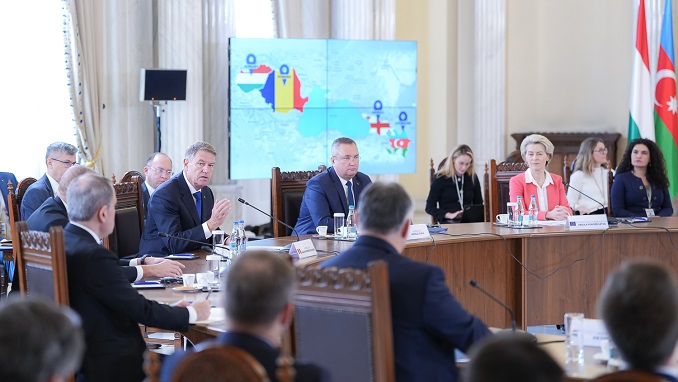As the European Union seeks to reduce its reliance on Russian energy following Moscow’s invasion of Ukraine and strives to diversify energy its supply away from Russia, it is Azerbaijan that will supply the block with electricity via a subsea cable according to a deal Baku signed on Saturday.
The agreement that the leaders of Azerbaijan, Georgia, Romania, and Hungary signed in Bucharest envisages the construction of a 1,195-kilometre electric cable running under the Black Sea that will carry green Azeri energy from planned Caspian Sea windfarms to Europe.
The first to salute the new deal was Azeri President Ilham Aliyev who called the agreement Azarbeijan’s contribution to European energy security and a new bridge between his country and the EU.
European Commission President Ursula Von der Leyen said that the project could become a new power source for the EU as the bloc is definitively diversifying towards reliable energy partners while turning its back on reliance on Russian fossil fuels.
Von der Leyen tweeted that the cable is a new transmission route full of opportunities that could also integrate Georgia to the European electricity market and bring electricity to the Western Balkans, Moldova, and Ukraine.
She emphasized that she’s glad this energy agreement puts a strong emphasis on renewables and enables them to build stronger electricity interconnections since Georgia, a non-EU member like Azerbaijan, will get an opportunity to become a regional energy hub.
The statement that Romanian President Klaus Iohannis released contained no financial details with regard to the construction project that is expected to start next year by linking Azerbaijan to Hungary via Georgia and Romania although it’s not expected to come on stream before 2029.
According to a Romanian presidency statement the deal also foresees enhanced cooperation in new energy technology, hydrogen production, and expansion of energy transit infrastructure.
As Von der Leyen noted, the project would enable the carrying of electricity supplies through to neighboring states and aid at the same time the modernization of Ukraine’s energy network.



